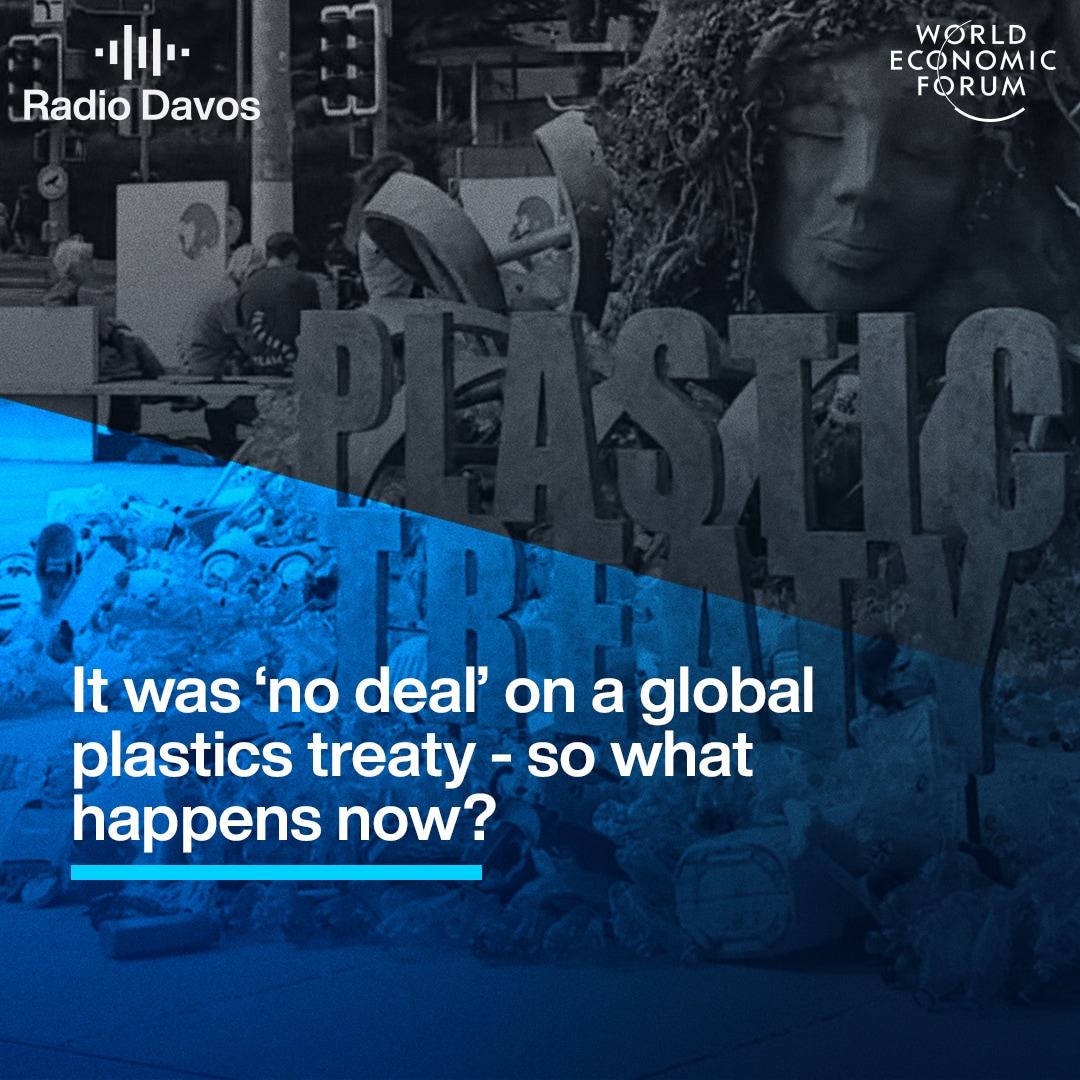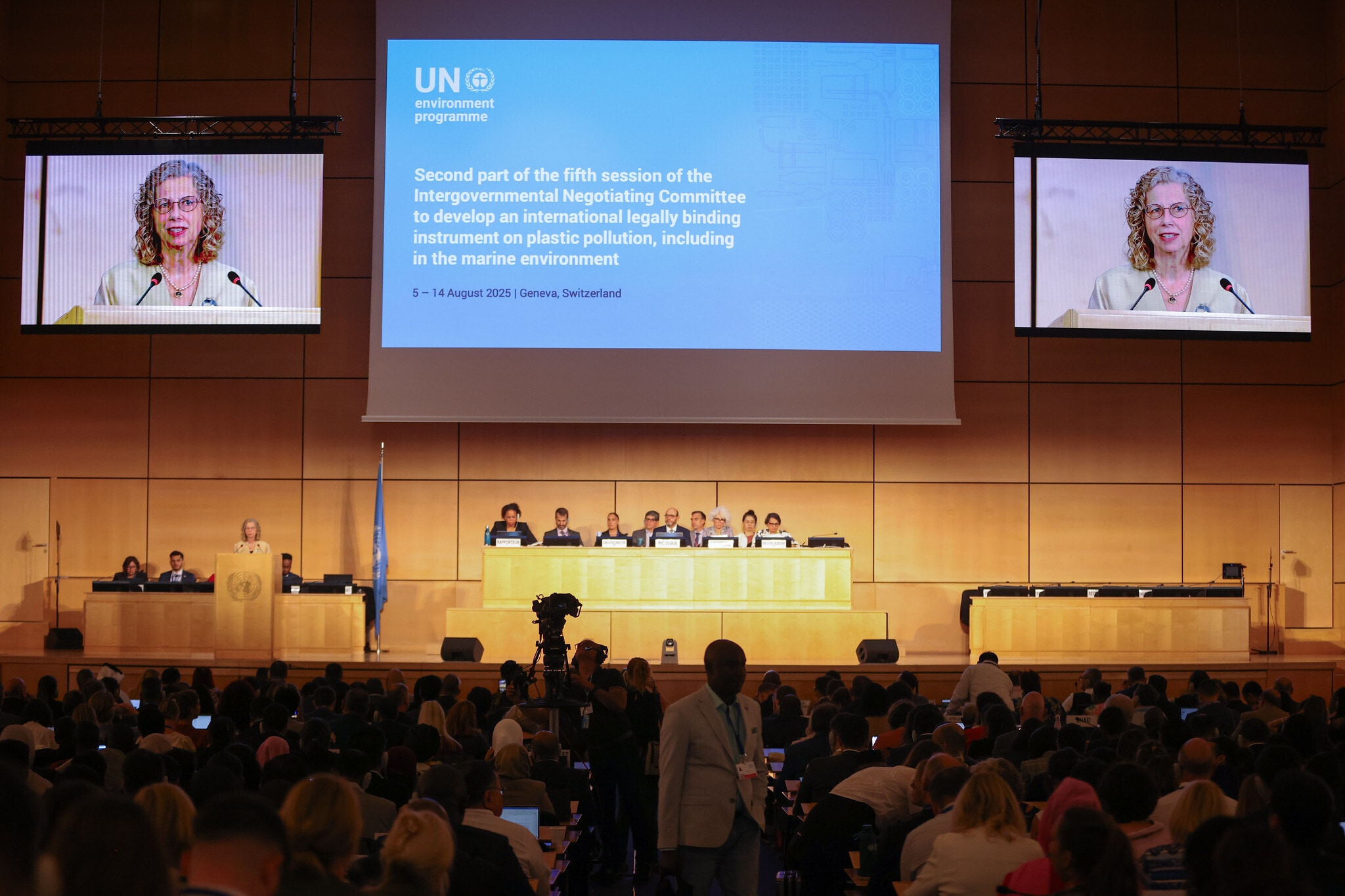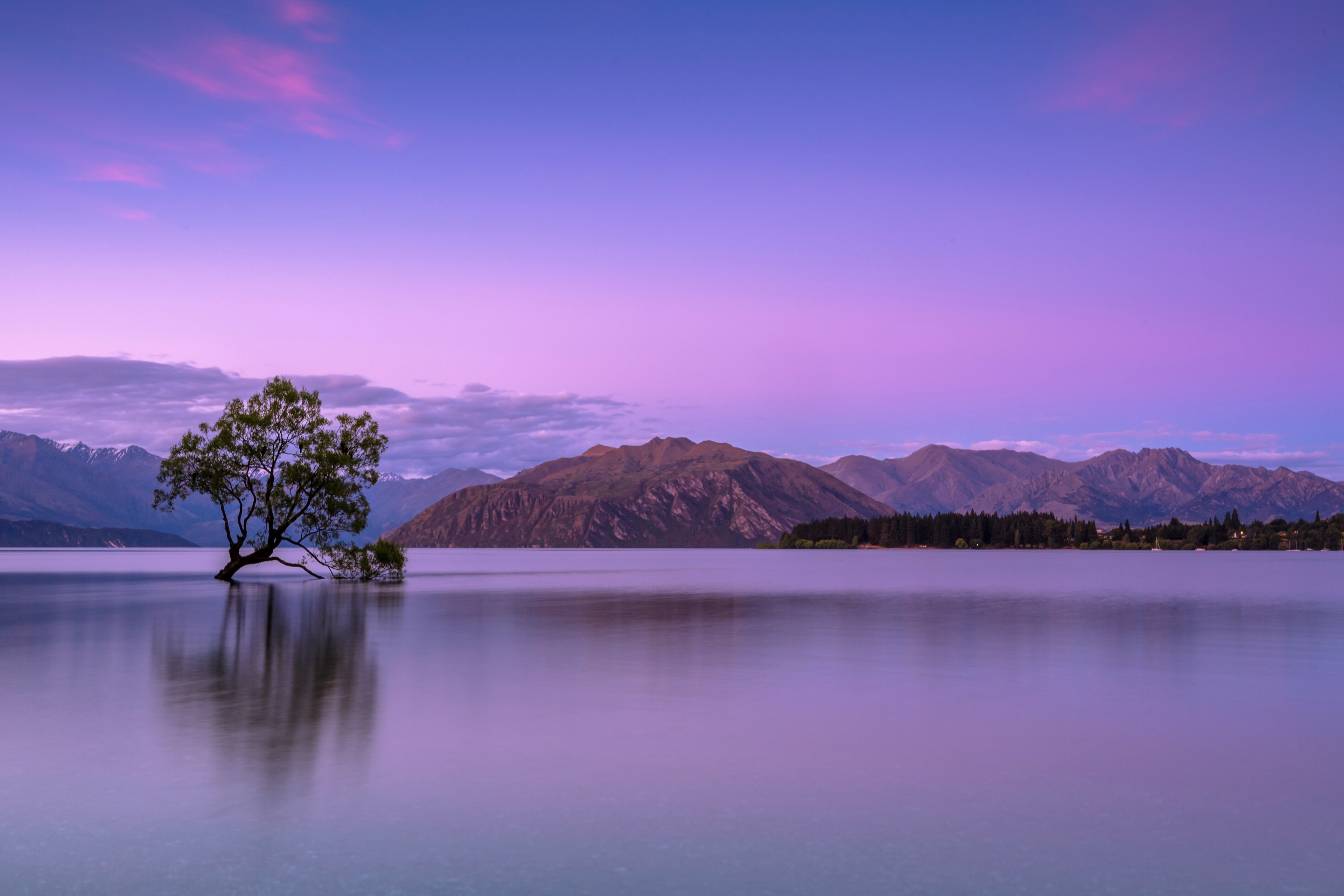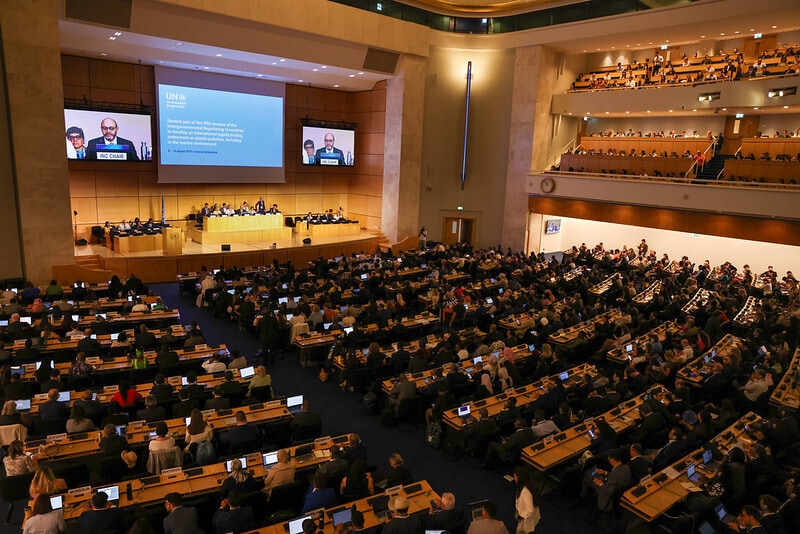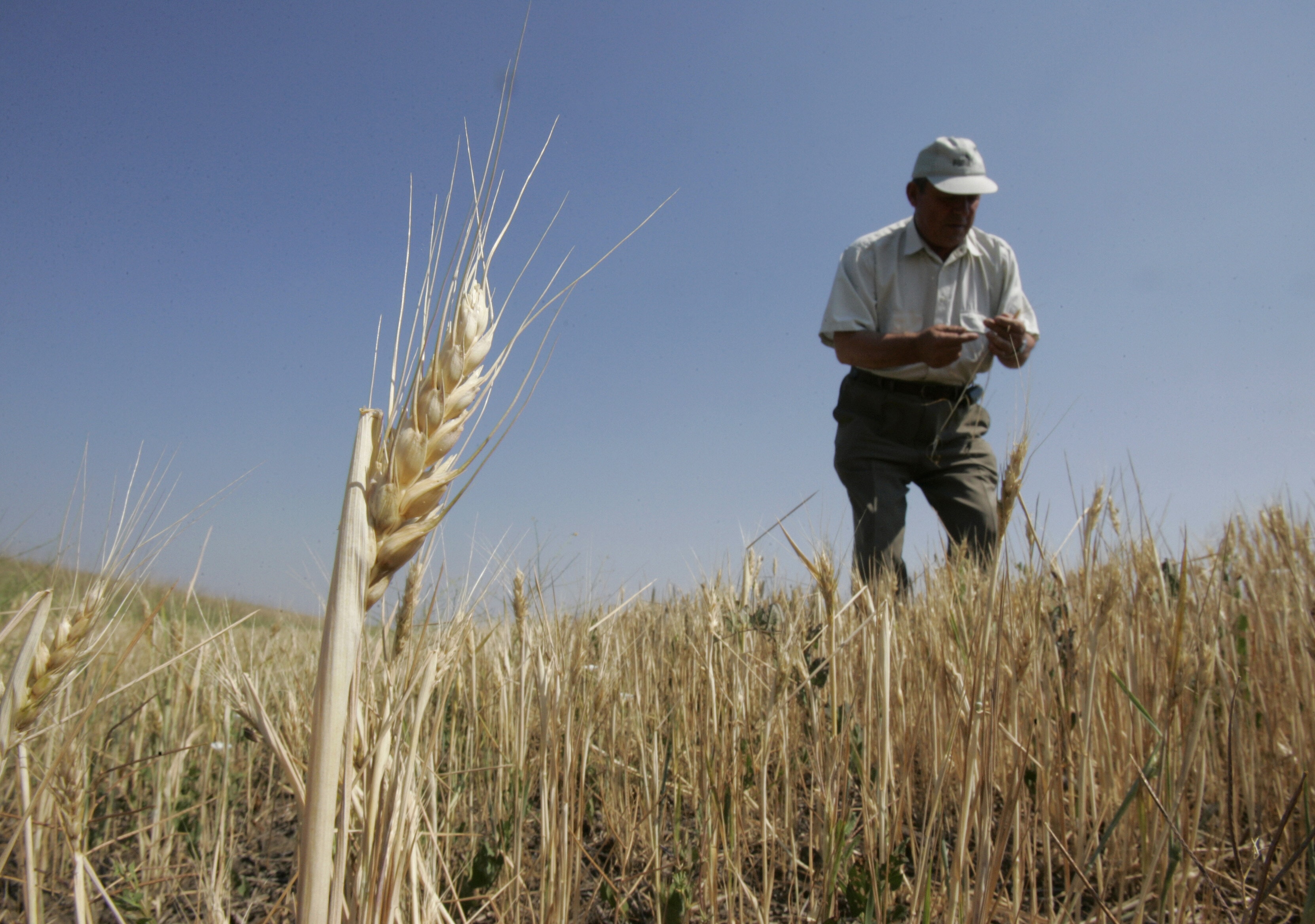Water scarcity is one of the greatest challenges of our time

Water is a precious commodity.
Image: REUTERS/Mian Khursheed
Stay up to date:
Future of the Environment
Water is essential for agricultural production and food security. It is the lifeblood of ecosystems, including forests, lakes and wetlands, on which our present and future food and nutritional security depends. Yet, our freshwater resources are dwindling at an alarming rate. Growing water scarcity is now one of the leading challenges for sustainable development. This challenge will become more pressing as the world's population continues to grow, their living standards increase, diets change and the effects of climate change intensify.
The 'water we eat' daily through the food we consume is much more than what we drink. Did you know, depending on the diet, we need 2 000 to 5 000 litres of water to produce the food consumed daily by one person? Evidence suggests that two-thirds of the world population could be living in water-stressed countries by 2025 if current consumption patterns continue. To achieve a #ZeroHunger world by 2030, we need to take action now.
Here are just four areas where we can work to save this precious resource:
Agriculture is both a major cause and casualty of water scarcity. Farming accounts for almost 70 percent of all water withdrawals, and up to 95 percent in some developing countries. We will have to use our natural resources more wisely as time goes on and when it comes to water there is no exception. For example, the choice of crop greatly impacts the amount of water that is needed. Did you know that pulses crops have a small water footprint meaning that to produce 1kg of lentils we only need 1 250 litres of water? Compare this to the 13 000 litres of water we need to produce 1kg of beef!
Water scarcity is expected to intensify as a result of climate change. It is predicted to bring about increased temperatures across the world. More frequent and severe droughts are having an impact on agricultural production, while rising temperatures translate into increased crop water demand. In addition to improvements in water-use efficiency and agricultural productivity, we must take action to harvest and reuse our freshwater resources and increase the safe use of wastewater. Doing so will not prevent a drought from occurring, but it can help in preventing droughts from resulting in famine and socioeconomic disruption.
Wasted food equals wasted water! When we waste food, we are also wasting the resources that went into producing it. Each year, one-third of all the food produced is either lost or wasted — that translates into a volume of wasted water that is equal to around three times the volume of Lake Geneva. We can all make small changes in our daily life to reduce our food waste, from using our leftovers to shopping only for what we need.

Water is often used inefficiently in the food value chain. In addition, key decisions such as site selection, technology and suppliers are frequently made without taking into account the impacts on water resources, especially when water is not a limiting factor either in quantities and/or in price.
FAO is working with countries to ensure water use in agriculture is made more efficient, productive, equitable and environmentally friendly. This involves producing more food with less water, building resilience of farming communities to cope with floods, droughts and the ever-changing climate, and applying clean water technologies that protect the environment.
The issue of water scarcity is at the very core of sustainable development. It comes down to the fact that we simply can’t grow the food we need if we don’t have enough water! We need to change our habits and act now to protect this precious resource. It is one of the most important ingredients to achieve a #ZeroHunger world!
Don't miss any update on this topic
Create a free account and access your personalized content collection with our latest publications and analyses.
License and Republishing
World Economic Forum articles may be republished in accordance with the Creative Commons Attribution-NonCommercial-NoDerivatives 4.0 International Public License, and in accordance with our Terms of Use.
The views expressed in this article are those of the author alone and not the World Economic Forum.
Forum Stories newsletter
Bringing you weekly curated insights and analysis on the global issues that matter.
More on Nature and BiodiversitySee all
Tom Crowfoot
August 20, 2025
Chavalit Frederick Tsao
August 19, 2025
Andrea Willige
August 15, 2025
Tom Crowfoot
August 14, 2025
James Balzer
August 14, 2025

